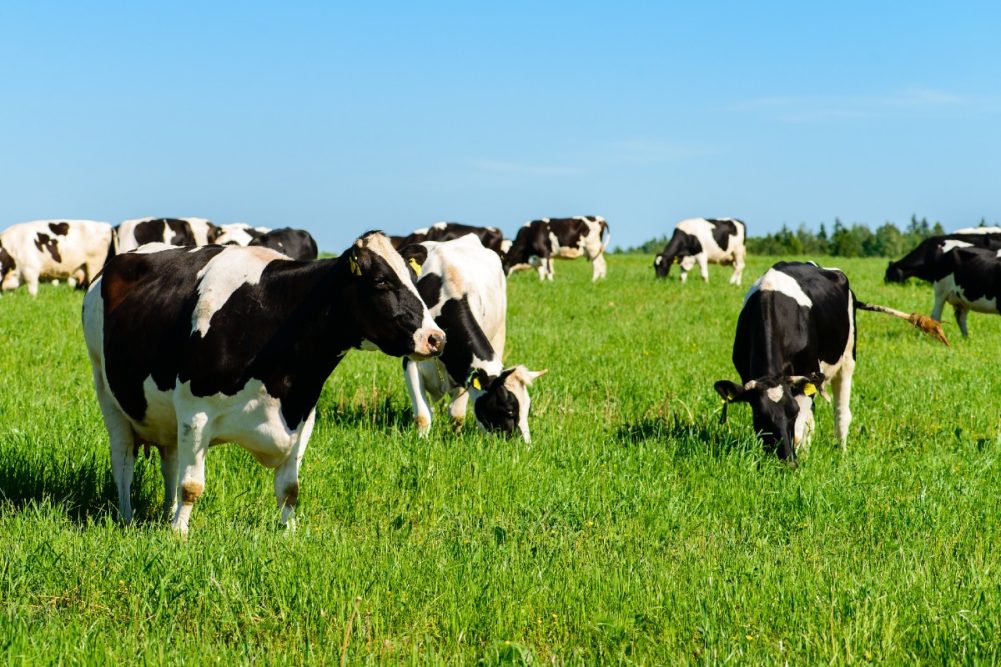WASHINGTON – The US Department of Agriculture (USDA) announced March 25 it is working with the Food and Drug Administration (FDA), Centers for Disease Control and Prevention (CDC) and state-level veterinary and public health officials, after highly pathogenic avian influenza (HPAI) was detected in two dairy cattle herds in both Texas and Kansas.
Experts suspect wild migratory birds are the source of the infections.
The USDA said the findings are not accompanied by any concerns about the safety of the commercial milk supply and there is not a risk to consumer health, as dairies are required to only send milk from healthy animals to processors.
A joint statement released by the National Milk Producers Federation (NMPF), International Dairy Foods Association (IDFA), US Dairy Export Council (USDEC) and Dairy Management Inc. (DMI) noted that the industry’s pasteurization process involves a high heat treatment (161.5˚F) of raw milk, killing microbes and pathogens, such as influenza.
“Consumers in the United States and around the world can remain confident in the safety and quality of US dairy,” the joint statement read.
The organizations also pointed out that routine testing and well-established US dairy protocols will continue to ensure that only safe milk makes its way into the food supply, in accordance with the federal Grade A Pasteurized Milk Ordinance. Dairy cows affected with such a virus are segregated – a normal practice with any animal health concert, the organizations added.
USDA said that after clinical samples of unpasteurized milk were collected from two Kansas dairy farms and one in Texas – an swab from another dairy in Texas led to the other detection – additional testing got started on March 22, because farms also reported finding deceased wild birds.
Government agencies also shared that testing conducted by National Veterinary Services Laboratories found no proof of changes in the virus that would make it more transmissible to humans.
Per USDA, roughly 10% of each dairy herd at the affected farms in Kansas and Texas appeared to be impacted by the virus.
It also noted, “Milk loss resulting from symptomatic cattle to date is too limited to have a major impact on supply and there should be no impact on the price of milk or other dairy products.”
NMPF, IDFA, USDEC and DMI said enhanced biosecurity protocols are being taken at US dairy farms.
“As information related to an illness affecting dairy cows in several states began to circulate over the past two weeks, USDA’s Animal and Plant Health Inspection Service worked with state veterinary authorities, as well as federal partners including the FDA, to swiftly identify and respond to detections and mitigate the virus’ impact on US dairy production,” the organizations stated.
The statement continued: “Dairy farmers also have begun implementing enhanced biosecurity protocols on their farms, limiting the amount of traffic into and out of their properties and restricting visits to employees and essential personnel. Avian influenza is an animal health issue, not a human health concern. Importantly, mammals, including cows, do not spread avian influenza — it requires birds as the vector of transmission and it’s extremely rare for the virus to affect humans, because most people will never have direct and prolonged contact with an infected bird, especially on a dairy farm. As a precaution, dairy farmers are taking important measures to protect their workers.”

